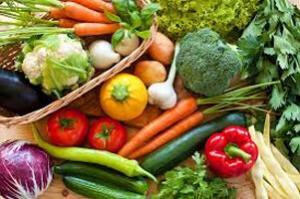
It’s time to understand your headaches better.
Nothing is worst than suffering from tension in your neck, pressure behind your eyes, throbbing in your temples and a pounding head…A headache is created by inflammation of the blood vessels, muscles and nerves in the head and/or neck. They tend to appear when the pain-sensitive structures in the head is over active or is not functioning properly. This can stop you in your tracks and ruin your day, however there is a growing amount of research on certain lifestyle and nutrition factors can help minimise the frequency and intensity of the headache and in some cases eliminate them altogether.
First off, it is important to identify what is triggering your headache, according to the Mayo Clinic it could be any of the following:
- Foods (see list below)
- Food additives i.e. aspartame and MSG
- Alcoholic and caffeinated beverages, especially wine and coffee
- Dehydration
- Stress at work or at home
- Blood sugar dips from skipping meals
- Hormonal imbalances, usually fluctuations in estrogen levels for women
- Sensory stimulus i.e. bright lights and loud noises
- Weather/barometric pressure
- Changes in sleep patterns
- Intense physical exertions
Below is a list of strategies that may help you get some relief from your headache pain:
1. Hydration: Skip the alcohol, carbonated (pop) and caffeinated beverages as they tend to dehydrate the body. Try not to let yourself get thirsty; get in the habit of sipping on purified water throughout the day. During high stress days, sick days, hot days and while you exercise; try incorporating coconut water to help replenish your electrolytes as it is full of important minerals such as potassium and magnesium, which will dilate blood vessels and help with blood circulation which can reduce headache symptoms.
2. Essential oils: Try rubbing peppermint oil on your temples, neck and wrists or diffuse lavender oil through a vapour or in boiling water and breathe deeply. These essential oils have a calming effect on the body by opening up the sinuses and allowing more oxygen to reach the bloodstream. This helps control the blood flow in the body, which can be the cause of your headache.
3. Supplements: Take care of any possible vitamin/mineral deficiencies in the body that could contribute to why you are suffering from headaches. Try supplementing and increasing foods that are rich in Magnesium, B vitamins, Omega 3 fatty acids and Antioxidants.
4. Light triggers: Bright lights and/or flickering lights may contribute to your headaches. Consider protecting your eyes with sunglasses when outside, install an anti-glare screen on your computer screen, and change your light bulbs to daylight-spectrum fluorescent bulbs.
5. Jaw and dental sensitivity: Avoid chewing gum, sticky candies and crunchy foods, and no more biting your nails, lips and/or pens. Some of these habits may not only be hurting your jaw and teeth, but also your head! Ask your dentist if you have any signs of grinding and/or clenching your teeth, as a night guard may help prevent headaches.
6. Holistic treatments and exercising: Massage, reflexology, acupuncture, biofeedback, using magnets, stretching, aerobic exercising, yoga, meditation… All of these have three things in common: They are releasing muscle tension, increase blood flow and all act as a stress reliever, which can soothe headaches.
7. The hot and cold treatment: To help relieve a tension headache; applying a hot pack to your neck and head, take a hot shower or relax in the bathtub with Epsom salts. This should increase blood circulation and relax tense muscles, which may alleviate throbbing pain. To help relieve a vascular headache i.e. a migraine; applying a cold compress to the forehead, head and neck for 10 minutes at a time to have a numbing effect, which will dull the pain sensation.
 |
 |
|
According to the Cleveland Clinic, here are some foods to avoid due to their ability to trigger migraines and headaches:
|
Foods that help soothe headaches:
|
Providing nutritional services for the Toronto/GTA, Hamilton, Barrie, Waterloo/Kitchener, Peterborough, London, Niagara and Ottawa regions.
For more information please go to:
- Website: www.korunutrition.com
- Phone: 1855 386 5678
- Fax: 1855 399 4376
- Supplement dispensary: korunutrition.shophealthwave.com
Our head office address is: 129 Glenforest Road, Toronto, Ontario, M4N 2A1





